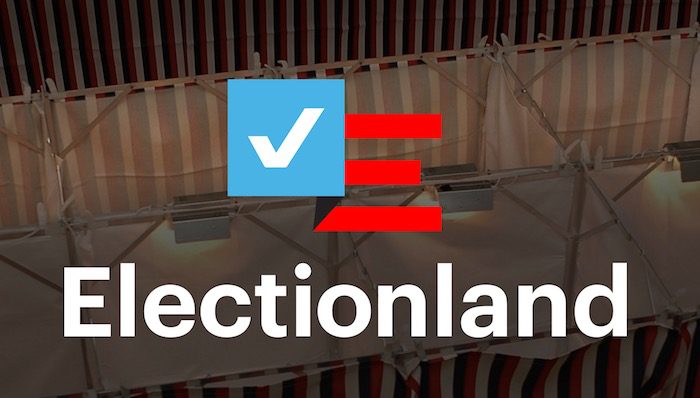
For voters, there are many things that can go wrong on election day. While Donald Trump has seeded paranoia about the potential for a rigged election, the issues voters will face are likely to be far more mundane: long lines at polling locations, machine breakdowns, and voter name purging.
ProPublica thinks that helping local newsrooms stay on top of these issues is how it can make a difference in November. Its new project Electionland is an effort to create a virtual newsroom that will monitor, assign, and promote reports of polling problems both on election day and in the weeks leading up to it.
Electionland which will partially launch in early October (with the start of early voting in Ohio) and launch fully in November, is a joint project with Google News Lab, WNYC, First Draft, Gannett’s USA Today Network, Univision News, and the CUNY Graduate School of Journalism, each of which will chip in to take point on part of the project. First Draft, for example, will lead ElectionLand’s verification efforts, while WNYC will help liaison with public radio stations around the country.
Our #Electionland newsroom on Nov. 8 will be here at @cunyjschool https://t.co/eZGz9aaDWz pic.twitter.com/X1tcfwDz4s
— Scott Klein (@kleinmatic) September 8, 2016
Instead of national news organizations, ProPublica plans to work with local outlets, tipping them on potential stories. Once a tip comes in and is sufficiently verified, Electionland will push the alert to a reporter or editor at a relevant local news organization, which can then decide to report on it.
Reports on potential polling problems will come via a handful of sources, including Google search trends, Twitter, Facebook, and data from Election Protection, a Lawyers’ Committee for Civil Rights Under Law project that lets voters call in to report voting issues. Another ProPublica project, Election DataBot, also launched today, will offer reporters real-time election data, including information from campaign finance filings, polls, and details about congressional votes. ProPublica also plans to create a tool to let voters themselves submit reports of voting issues.
Here's why it's needed: a presidential election isn't 1 contest; it's 50 state elections involving thousands of voting places & officials.
— ProPublica (@ProPublica) September 8, 2016
Scott Klein, ProPublica’s deputy managing editor, said that projects such as Electionland and Election DataBot are more viable today thanks to a combination of greater data access, research, and news organizations’ increased skill with spotting and responding to social media reports. “Generally, there’s a lot more visibility into stuff thats happening, as it’s happening,” he said.
Leave a comment